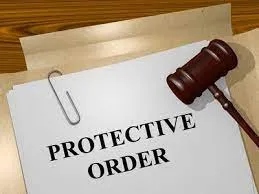Most domestic violence cases are treated similarly from state to state. However, not everything is constant, and in Arizona domestic violence is defined if one or more of the following has occurred:
- Brandished a deadly weapon or threatened to kill you with the said weapon;
- Threatened, intimidated, harassed, or interfered with the custody of your children;
- Assaulted you with a deadly weapon;
- Damaged or trespassed upon your property;
- Kidnapped or held you prisoner.
Protective Order Options in Arizona
Arizona has five main protective orders:
- Emergency Order of Protection
- Order of Protection
- Release Order
- Injunction Against Harassment
- Injunction Against Workplace Harassment
Emergency Order of Protection
A person deemed in imminent or present danger can be granted an emergency order of protection. An authorized judicial officer may grant this verbally, in writing, or by telephone. The order will typically instruct a person not to commit an act of violence or even contact the person the order is protecting. An emergency order is only valid for the close of the following judicial day unless a court decides to continue it.
Order of Protection
Like the Emergency Order of Protection, an Order of Protection is the same but without immediate urgency. The order provides protective relief (removing firearms from the home) and one may add people within the home to the order as well.
Release Order
In many rural counties when the courts are closed there are no judicial representatives to issue emergency orders upon the release of a person arrested on domestic violence charges. For that reason, release orders protect the alleged victim and others (must be specified) from the alleged perpetrator. The courts have 24 hours to send a certified copy of the release order to the sheriff of the corresponding county. If the order is violated the victim may summon a peace officer to enforce the conditions against the defendant.
Injunction Against Harassment
An Injunction Against Harassment is an order to restrict the harassment or annoyance of another person. The most frequent situations involve ex-romantic partners and neighbors, but it can also pertain to strangers in some circumstances as well. It is important to note that harassment is defined as a “series of acts” and not simply one act directed at a person. The Order of Protection can also include the protection of other members of the home while the injunction does not.
Injunction Against Workplace Harassment
Finally, one of the newer protective orders in Arizona, the Injunction Against Workplace Harassment does exactly how it sounds – provides protection to a person(s) at the workplace. Harassment in this instance can be a single threat or a series of acts. An employer or employee may file on behalf of more than one person, but in general, this injunction applies between two people. As a side note, this injunction cannot prohibit free speech or any other constitutionally protected right.



